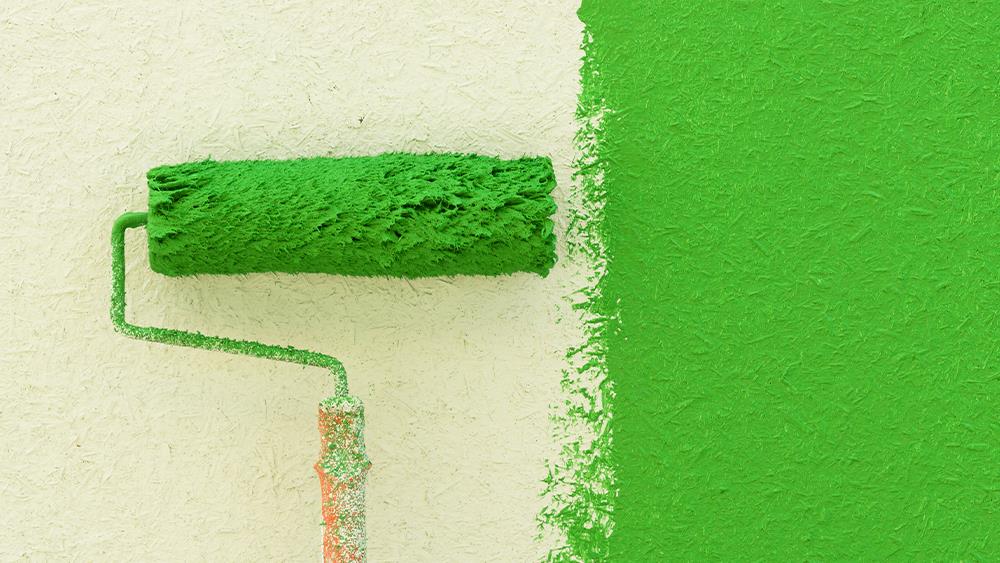

The British Coatings Federation (BCF) has launched a new online guide, ‘Green Claims Guide to Decorative Paints’, to tackle the rising number of green claims in the decorative paints industry.
According to the UK Government’s website, green claims (sometimes called ‘environmental claims’ or ‘eco-friendly claims’) are ‘claims that show how a product, service, brand or business provides a benefit or is less harmful to the environment’.
In an ever more competitive marketplace, the makers of decorative paints often rely on unique selling points to make their products stand out. Some companies, however, may be misleading consumers with unsubstantiated green claims about their products. A recent international analysis of websites conducted by the Competition and Markets Authority (CMA) found that 40% of green claims made online could be misleading.
‘Non-Toxic’, ‘Natural’, ‘Vegan’, ‘Child and Pet-safe’, Eco-friendly’ and ‘Organic’ – these are just some of the ostensibly eco-friendly terms that businesses are using to market decorative paint products to consumers.
BCF Chief Executive Officer Tom Bowtell commented: “With consumers becoming increasingly more inclined to make more sustainably conscious purchases, BCF are recording increasing numbers of news articles around the subject of ‘eco-paints’, as well as reports from our members in the decorative paints industry of emerging companies making unsubstantiated claims. Such claims, if unproven, can be damaging to the decorative paints industry’s reputation, as well as misleading consumers.”
BCF’s green claims guide breaks down the definitions of some of the most commonly used phrases and buzzwords used in the marketing of decorative paints to consumers. The aim is to create a level playing field within the industry, ensure businesses are complying with the law, and that consumers are not being misled.
Possibly the most used consumer product terms are ‘eco-friendly’ or ‘green’, which often come as broad statements with no scientific proof to back them up. As descriptors for paint products, these words, often misappropriated from the food industry, are too vague to adequately describe paint. These buzzwords may attract the attention of consumers but are meaningless and often signal little than greenwashing.
Another commonly used phrase is ‘Zero Volatile Organic Compounds (VOCs)’. BCF takes the position that the use of the terms ‘Zero-VOC’ and ‘VOC-free’ are false claims and should not be used in the paint industry.
BCF members have now adopted the use of the term ‘TRACE’ VOC to improve communication to consumers, highlighting which products have the lowest levels of VOCs. As the license holders of the industry-wide standard VOC Globe scheme, BCF will be promoting the new ‘TRACE’ globe in the coming months as an alternative to ‘Zero VOCs’.
To help businesses understand how to communicate their green credentials while reducing the risk of misleading shoppers, the CMA has published the Green Claims Code. This focuses on six principles based on existing consumer law and makes clear that businesses ‘must not omit or hide important information’ and ‘must consider the full life cycle of the product’.
BCF’s new guide aligns with the CMA’s Green Claims Code and welcomes the increased initiative being taken by UK regulators. More action will likely be brought against those not complying with the CMA’s Green Claims Code, ASA’s Advertising Codes, and applicable consumer protection legislation.